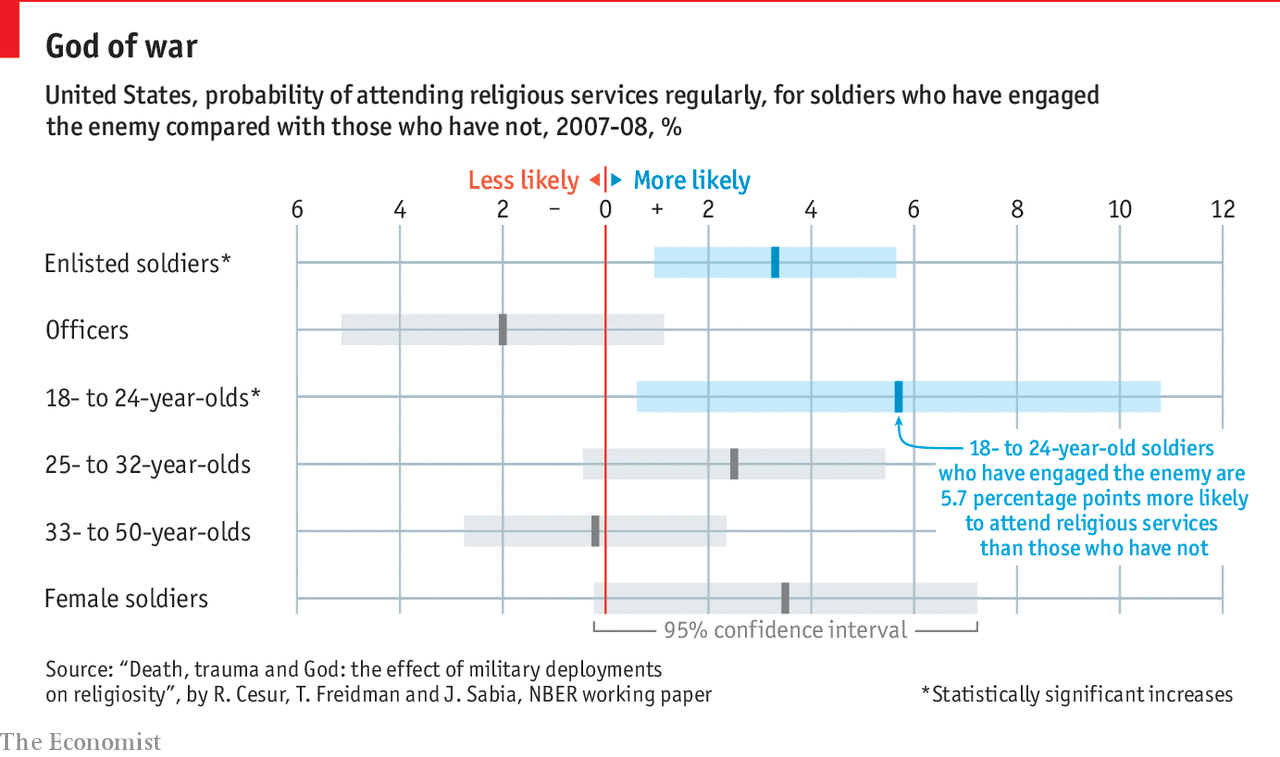
3 Ways to Build a Religiously Inclusive Work Culture
On World Religion Day, all organizations should ask if their employees feel empowered to bring their “whole selves” to work.

American Culture: Religion
The United States is a secular nation, meaning there is a formal separation between state and religious entities. Society is underpinned by the strong principle of religious freedom that emphasises people’s liberty to worship any religion and to not favour one religion over another.

Benefits of Religion
Different religious traditions have played a major role in the evolution of society. This is a look at some of the benefits that the world has received from religion.

How Should You Cope With Religious Discrimination at Work?
Employers don’t get to discriminate on the basis of either belief or non-belief, and that is not an opinion, that is the law.

Soldiers Who Have Come Under Fire Often Find God
A study of American servicemen finds that those who have experienced combat become more devout

6 Things I Wish People Understood About Atheism in America
10 percent of Americans identify as atheists — but there’s a lot that people don’t know about us.

The Main Differences Between Catholics and Protestants
They worship the same God, but the principles of their faith are different. Five hundred years after the Reformation, there are still painful divisions between Protestants and Catholics.

Influence Of Religion On Symbolism And Iconography
Religious figures and spiritual authorities themselves form a vast complex of symbols: gods, saviours, redeemers, heroes, the avatars (incarnations) and the Ishvaras (manifestations) of Hinduism, the heroes and gods of epics, the founders, lawgivers, saints, and reformers of the great religions.

In the U.S., employers must respect their employees’ faith
The U.S. is home to citizens of many faiths.

How’s Your Small Business Handling Religious Accommodation?
What is a religious accommodation

Religious & Belief Tolerance is Necessary For The Workplace
According to Heiner Bielefeldt, UN Special Rapporteur on Freedom of Religion, for most employees the workplace is more than just a place where they earn money.

The Delicate Issue of Religion in the Workplace
The challenge for employers arises from defining where “reasonable accommodations” begin and end—and often, their employees hold a different view.

Religion in the Workplace
Under the First Amendment, Americans enjoy two freedoms with respect to religion: the right to be free from a government-imposed religion, and a right to practice any religion.

Core Beliefs of Hindus
Local, regional, caste, and community-driven practices influence the interpretation and practice of beliefs throughout the Hindu world.

Examples of Religious Discrimination in the Workplace
What if your religious beliefs come into conflict with another's person's rights? What if what you believe is vastly different than those around you? What if, as a result, you experience religious discrimination? Let's look at some examples of religious discrimination in the workplace and what protections are available.

Religious Discrimination in U.S. Workplace? Not for Jews in the South
New study shows employers prefer applicants who do not list religious affiliation, but if they have to choose, they prefer Jews to Muslims or atheists.

Five Tips For Supporting Muslims In The Workplace
As we work to create more equitable workplaces, we need to understand and support the needs of all identities that have been marginalized or underserved.

Religion and the Workplace
Know what accommodations you're legally required to make when employees need time off work for religious observances.

Separation of Church and Cubicle: Religion in the Workplace
Religion in America is once again undergoing a period of intense examination.
Reasonable Accommodation for Religious Beliefs
An employer must accommodate employee religious beliefs, unless it would pose an undue hardship.

